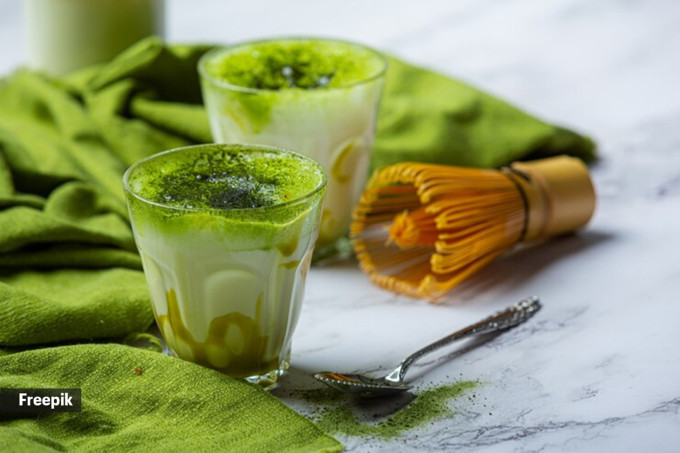Why you must never use a metal spoon with matcha powder
When making matcha, many people might not realise that the type of spoon they use can affect the quality of their tea.
This is highlighted in a reel posted by digital creator Mona Vand. She discourages people from using metal spoons with matcha, and advocates using a wooden spoon instead. “I love embracing the beauty of using wooden spoons with matcha. It really enhances the whole experience — adds elegance and a sense of calm and connection with nature, and improves taste,” she captions the post.

View this post on Instagram
A post shared by Mona Vand (@monavand)
Alok Singh, founder at Diga Organics and expert in Food Science, Agriculture, says, “Using a metal spoon with matcha powder can lead to potential chemical reactions due to the reactive nature of certain metals and the sensitive compounds in matcha.”
Matcha contains catechins and chlorophyll, he adds, which can be affected by trace metal ions. Oxidation is one example of how dietary antioxidants react with metals, such as reactive ones like aluminum or non-stainless steel. This reaction can alter the unique characteristics of matcha, making it taste metallic or even bitter.
Advantages of using a wooden spoon over a metal one
“Using a wooden spoon for matcha is both a traditional practice and a scientifically sound choice,” Singh stresses.
Unlike matcha powder, which is chemically active, wood does not react, ensuring that the subtle and beneficial taste and healthful compounds in matcha remain intact.
 Wooden utensils prevent the over-extraction of matcha’s natural umami and sweetness. (Source: Freepik)
Wooden utensils prevent the over-extraction of matcha’s natural umami and sweetness. (Source: Freepik)
In the Japanese tea ceremony, he explains that a bamboo ladle called ‘chashaku’ is one of the earliest implements used. This highlights the importance of using materials that do not affect the tea’s flavour.
Wooden utensils prevent the over-extraction of matcha’s natural umami and sweetness, allowing the customer to enjoy a more natural and original taste.
“Using a wooden spoon over a metal one offers several sustainability and environmental benefits as well,” he says.
Drawbacks of using a metal spoon for matcha
There are some health concerns if one uses a metal spoon while making matcha drinks or food. These are:
Leaching of harmful metals: If the coatings on metal spoons (e.g., compounds with acids or reactive substances) are not properly controlled, they may become contaminated with metals during the activation process. Besides leaching safe metals, harmful metals might also leach into the tea if consumed regularly.
Taste and quality: Heavy metals present in metal spoons can react with matcha, diminishing its antioxidant properties and introducing a metallic taste. The benefits of matcha, such as its high antioxidant content, are best preserved with proper utensils.
Disclaimer: The copyright of this article belongs to the original author. Reposting this article is solely for the purpose of information dissemination and does not constitute any investment advice. If there is any infringement, please contact us immediately. We will make corrections or deletions as necessary. Thank you.

